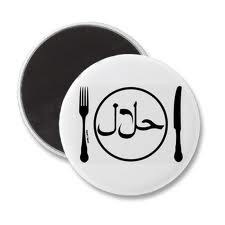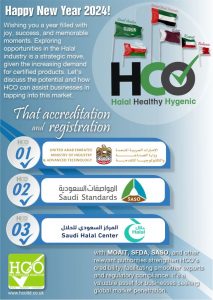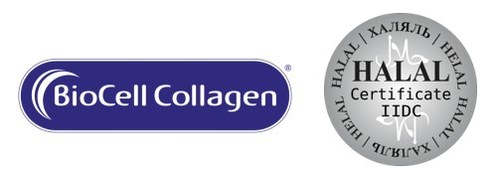By Dr. Marco Tieman
I slam is a Deen, Arabic for religion, a path, a way of life. For Muslims it is an obligation to consume halal products. Evidently, trust in halal is an important factor for the Muslim consumer in purchasing their daily needs. Therefore, Muslims are seeking products with a halal logo from a known halal certification body. The halal certification body in Malaysia is JAKIM, but you see also other halal logos in Malaysian supermarkets for imported consumer products from Indonesia (MUI), Thailand (CICOT), Singapore (MUIS), The Netherlands (HFFIA), and many more.
slam is a Deen, Arabic for religion, a path, a way of life. For Muslims it is an obligation to consume halal products. Evidently, trust in halal is an important factor for the Muslim consumer in purchasing their daily needs. Therefore, Muslims are seeking products with a halal logo from a known halal certification body. The halal certification body in Malaysia is JAKIM, but you see also other halal logos in Malaysian supermarkets for imported consumer products from Indonesia (MUI), Thailand (CICOT), Singapore (MUIS), The Netherlands (HFFIA), and many more.
According to the ‘State of the Global Islamic Economy Report 2020/21’ the global Islamic economy is a USD 2 trillion industry (excluding Islamic finance), consisting of halal food, media and recreation, modest fashion, cosmetics, pharmaceuticals, and Muslim friendly travel. Halal has gone mainstream, available in Muslim and non-Muslim countries and also produced by Muslim and non-Muslim countries. Several large consumer product manufacturers, coffee chains, and fast-food chains operating in Muslim (majority) countries, measure the halal confidence of their products among Muslim consumers through periodic surveys. This information provides brand owners with basic market information on the Muslim consumer preference of their products and services. However, is this enough market intelligence for brands to understand as consumer preference and perception can change very quickly? I am of the opinion that consumer preference is not a suitable measure for corporate halal reputation and certainly not solid intelligence for corporate halal policy decisions.
Halal trust is far more complex than just halal confidence in a halal product or service. What is halal trust exactly and what are appropriate criteria to measure halal trust? I would like to define halal trust as ‘The belief of the Muslim consumer in the halal integrity of the product or service in accordance with his or her faith’.
The building blocks that determine the Muslim consumer trust in a brand consist of five components (variables), namely: halal logo, excellence, transparency, halal authenticity, and intention. Let me explain each component in more detail.
Halal logo
The halal logo represents the credibility of a halal certificate: the level of trust in the halal certification body and its standard. Does the Muslim consumer trust the company’s halal certificate, admires and respects the halal certification body’s halal certificate, and prefers this halal certificate to other halal certificates? There is a wide spectrum of halal certification bodies available in the world. Research shows that the JAKIM halal logo from Malaysia is a preferred halal logo in Malaysia, but also many other Muslim (majority) countries.
Excellence (ihsan)
Halal excellence is the creation of products and services that are lawful (halal) and good (tayyib). Does the company perform at the highest level of food/product safety and produce products/services that are religiously pure? Successful companies in the halal industry are those companies that embrace halal excellence by design. Halal excellence is a process – a pursuit of excellence.
Transparency
Evidence supports from previous halal crises with top brands that transparency is crucial. Does the Muslim consumer believe what the company says and are they making truthful halal claims? Best-in-class companies provide information on their website about their halal policy and halal control measures in operations. During a halal issue or crisis, be transparent to your stakeholders and in particular the consumer.
Halal authenticity
Halal authenticity is the halal DNA of a company and the most valuable asset for corporate halal reputation. What is the halal DNA of the company? Does the company have a halal policy, its DNA aligned with the values-norms-ideals of the Muslim faith, and exceeding existing halal standards? Halal authenticity cannot be left to the internal halal committee, but is the responsibility of top management.
Intention (niyyah)
Intention is the foundation of halal trust. Intention and honesty of a company addresses aspects, such as if the Muslim consumer admires and respects the company, thinks the company is honest, and respectful of Islamic law. In Islam, intentions are the roots of every action. Actions of a company are ultimately judged by its intentions.
According to the Author of ‘Halal Branding’, Professor Dr. Jonathan A.J. Wilson, ‘halal is beautifully simple, yet complicated at the same time’. A corporate halal reputation should not be taken for granted and requires effective measurement of both corporate halal reputation and halal trust in order to protect your licence to operate in Muslim markets. Halal trust takes a lifetime to build, seconds to break, and a long time to repair.
The writer is a Professor with ELM Graduate School (Help University) in Malaysia and the Author of ‘Halal Business Management: A guide to achieving halal excellence’.



